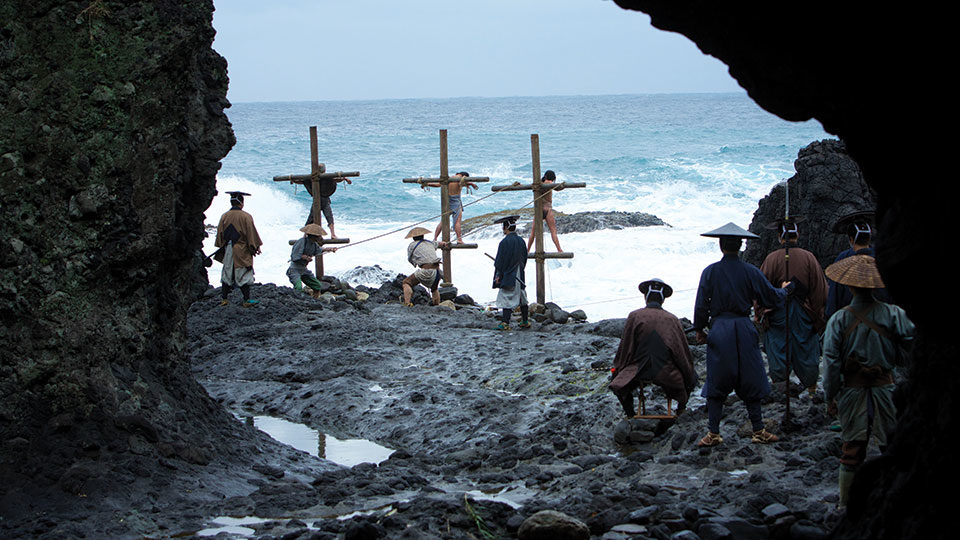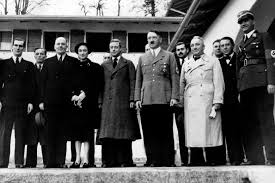
strongest impulses within most of us is the belief that good people are rewarded,
and bad people are punished. There is an immediacy to it. When bad things begin
to happen to us, we quickly ask, “What did I ever do to deserve this?” When
someone else is suffering in life, there is a natural tendency to see them as
getting what they deserve. We love stories of “good people” who win the
lottery. We like to believe it is because they deserve it. As a pastor and leader in the church, people often come to
me for counsel and many times they speak of a feeling that they are being
punished for wrong they have done. Even Jesus’ own disciples assume this “retribution
theology” when they ask Jesus about their encounter with a blind man. “Who
sinned, this man or his parents that he has been born blind,” they ask (John
9:2).[1]
Jesus immediately corrects them and says neither, and yet you and I still tend
to think that this is the way the world works. Proponents of the Prosperity
Gospel use our natural tendency and try to convince us that this is indeed the
way the world works.[2]
Job in the Old Testament is designed to help us understand the true way God
functions. The preface of the book of Job is where we must begin and be certain
to understand that Job is considered by God himself to be “innocent and
virtuous” (1:8; and 2:3) long before and even after the calamities come upon
him. The Accuser believes that if Job lost all that he had, and if his health
was taken away, he would no longer be innocent, virtuous, and faithful to God.
But God allows the Accuser to take away all of the good in Job’s life and still
Job remains faithful, virtuous, and innocent.
the book is an explanation of the common understanding of retribution theology
which Job’s friends and even Job seem to endorse. There is this sense in which
humans are forever believing that if someone is suffering, they must have
sinned; and even when the evidence suggests otherwise, we will continue to believe
in this retribution theology.
reading this article will argue that, indeed, retribution theology is the way
in which God functions. They would show proof-texts from the book of Proverbs,
or Deuteronomy 27, 28 (which connects obedience to God’s law with rewards and
disobedience with curses) and tell us that is precisely how God functions.
However, Tremper Longman III explains it this way.
the book of Job…is to undermine the idea that retribution theology works
absolutely and mechanically. Sometimes sin does lead to negative consequences,
but not always. Similarly, sometimes proper behavior leads to positive
outcomes, but not always. Job serves as an example to warn against judging
others on the basis of their situation in life.” (p. 67).
fully answers why Job suffers. God simply appears before Job and it is clear to
Job that God is the only wise one. Job “repents” at the sight of an
all-powerful God. But his repentance is not from
dialogues, Job has grown increasingly impatient… He concludes that God is
unjust. At the end of the story, he changes his attitude and behavior (he
repents, in other words) toward God, now that he has not only heard about him
but also seen him (42:5).”[3]
the Book of Job is that, regarding suffering, “…the ultimate resolution is
patient suffering before a wise and powerful God.”[4] We
may not understand it ourselves, but we can trust the wisdom of our God as we
go through the sufferings of this life. Job is an important book that teaches
about wisdom and suffering. May we read it carefully and mine all of the truths
it has to offer.
Here and throughout this article, I rely heavily upon Tremper Longman III’s
excellent commentary on the book of Job and particularly the essay contained
within it entitled “The Theological Message of the Book of Job.” Job (Baker Commentary on the Old Testament
Wisdom and Psalms), Baker Academic, 2012 Commentary by Tremper Longman III.
Longman p. 65, 66.
Longman p. 68.

die for the good and beautiful. It is easy enough to die for the good and
beautiful; the hard thing is to die for the miserable and corrupt.”
-Shusaku Endo; Silence,
Picador, 2016.

Snow)
Angel Snow)
dancin’ ’round inside my head
I’m tryin’ not to lose everything she said
Even so in standing at the foot of my bed last night
This mountains gettin’ higher with every step
I’m trying not to lose everything I’ve kept
Captured by the fortune tellers in my mind
Ooohh, they always come back again
Every time freedom tries to pull me out
They suck me back in
Oooohh, we gonna’ let that fire burn you
Tell me how you’re gonna’ walk on coals and water too
Can you taste these words fallin’ from my mouth
“Ain’t old fashioned love what it’s all about?”
I heard an old black man shout Christmas eve
Should’ve known better than to run to you
My heart started talking to me way to soon
Damn those fortune tellers in my mind
Oooohh, they always come back again
Every time freedom tries to pull me out
They suck me back in
Oooohh, we gonna’ let that fire burn you
Tell me how your gonna’ walk on coals and water too
walk on coals and water too

and a scripture speaking of roads. Each item is about making choices. The song
by Krauss and Snow is about the mistakes in life and the roads taken that were
wrong choices that affect the rest of our lives – and about the resolve to not
make the same or even worse mistakes again. Taking the “road less traveled
on” is seen as the way to avoid such mistakes.
Frost seems to choose (although there is some discussion about exactly which
road the person chooses) the path that is less worn, the path that fewer people
take. Jesus calls us to take the narrow road that is taken by fewer people. The
question for us is, “what is the path less travelled?” How do we know whether
or not we are on that path? Certainly, the path of following Jesus is a path
less travelled. But, even then, there is a tendency to follow the crowd who
seem to be following Jesus rather than to truly keep our eyes on the Master.
sigh is truly the key to understanding the thoughts of this poet and the
meaning of the poem (not necessarily one and the same). Certainly, to
understand each of these poetic stories, one must take into account longing and
regret, right and wrong, good choices and poor choices. Jesus calls us to the
narrow way that few travel; but I must guard my own heart and mind so that I
might not think too highly of the path I have chosen for myself. What of
further branching of the road? I may have made one right or wrong choice but, in the immortal words of Robert Plant,
But in the long run
There’s still time to change the road you’re on.” (lyrics to “Stairway to Heaven”)

topic. Discussion will follow in the next few days. For now, ponder the words
of a song by Viktor Krauss (Alison’s brother) and Angel Snow, a poem by Robert
Frost, and the words of Jesus Christ in the Gospel of Matthew. Note well how
each of these phrases is used: “this road less traveled,” “two roads diverged,”
“the other” road, the road “less traveled by,” “narrow gate,” “highway to hell,”
and “gateway to life.”
Days
slow
a yellow wood,
And sorry I could not travel both
And be one traveler, long I stood
And looked down one as far as I could
To where it bent in the undergrowth;
Then took the other, as just as fair,
And having perhaps the better claim,
Because it was grassy and wanted wear;
Though as for that the passing there
Had worn them really about the same,
And both that morning equally lay
In leaves no step had trodden black.
Oh, I kept the first for another day!
Yet knowing how way leads on to way,
I doubted if I should ever come back.
I shall be telling this with a sigh
Somewhere ages and ages hence:
Two roads diverged in a wood, and I—
I took the one less traveled by,
And that has made all the difference.
Living Translation (NLT)
Kingdom only through the narrow gate. The highway to hell is broad, and
its gate is wide for the many who choose that way. But the gateway to life
is very narrow and the road is difficult, and only a few ever find it.”

“What we are looking for in reading the Bible is the ability to turn the
two-dimensional words on paper into a three-dimensional encounter with God, so
that the text takes on life and meaning and depth and perspective and gives us
direction for what to do today.” ― Scot McKnight[1]
we follow the Bible or do we follow Jesus?” “Are Christians lovers of the book
or lovers of the Lord?” These can be challenging questions for many of us. Perhaps
McKnight gets closest to the answer by reminding us that the words we read in
our Bible are a simplified (2-D) representation of a complex life (3-D).
Whether we are reading about Jesus or Noah, the words on the page will never
fully represent the intricacies of a life lived with temptations, triumph, and
tears. May our hearts reverently approach the word of God with awe and humility,
seeking always the truth behind text on a page.
Read the Bible, Zondervan, 2016.

In Romans
9:3, Paul the Apostle expresses the emotion that, “for my people, my
Jewish brothers and sisters. I would be willing to be forever cursed—cut
off from Christ!—if that would save them.” A great many commentators and
writers have attempted to understand just what Paul meant by these words. We do
well to note the conditional nature of the phrase. We get the impression that
Paul knows that what he is saying is not the way God works. Paul cannot make a
bargain with God whereby Paul is forever cut off from Christ to save the Jewish
people. Salvation is more complex than such a scenario implies and Saint Paul
is well-aware that he cannot save the Jewish people in such a way.
remainder of this blog contains spoilers
for the movie, Silence, 2016 and the
blog will make more sense after you watch the movie.) Martin Scorsese also
understands that salvation, damnation, faith, suffering, pride, and apostasy
are more complex than we may be led to believe and has created a movie that
opens up a conversation regarding these concepts. At two hours forty-one
minutes in length, it is long and sometimes grueling to watch. It requires substantial
concentration to catch the nuances that are significant to the plot of the
movie: the triumphant faces of two Catholic Missionaries setting off for fame,
martyrdom, and glory as they imagine their fate as heroes of the faith; an
expression on a face that betrays inner doubts or tremendous pride; a rooster
crowing in the distance following a particularly eventful rejection of Christ.
scenes of Christians being tortured for their faith. The movie is set in Japan in the
early 1600’s when Christianity was suppressed by fierce war-lords or shoguns.
The first missionaries to Japan (Portuguese Jesuits) were well-received and
many Japanese became followers of Jesus and members of the Catholic Church. However,
many of these new converts were given Portuguese Christian names and encouraged
to adopt Western culture which caused the local authorities to look upon
Christianity as a subversion of Japanese culture and a threat to their way of
life. Persecutions and pressures to renounce the faith soon followed.[1]
seek to understand God in the midst of horrific persecution. The title refers
to the quiet with which God responds to their prayers. They pray for rescue,
relief from torture, strength to keep their faith, and the growth of the Gospel
in Japan – and Jesus is silent to them. When Jesus does finally respond, his
voice is unexpected and contradictory to the proclamation we anticipated.
movie upon the 1966 book (English translation 1969) by Shusaku Endo and has spoken of making the movie as
“a pilgrimage” back into his Catholic faith. In interviews about the movie, he
identifies pride as one of the key themes of the movie. In the discussion of
pride and going to extreme measures to save others, we are led back to the
first words of this blog in which we discussed Saint Paul’s words to the Romans
(more on that in a moment).
most difficult questions of the movie. What is it that motivates the priests to
travel to Japan and preach the Gospel? They are aware that it means certain torture and death, yet they go anyway. Is it truly because of a love for the
people of Japan or pride in being the ones to carry the Gospel and die for
their faith? The priests are not afraid to die for their faith, but what they
were not prepared for was the fact that others would be tortured and killed
before their eyes as a way to make them recant their own faith. One priest
(Ferreira), who has already renounced his faith, demands that Rodrigues
renounce his as well to save those who are being tortured until Rodrigues apostatizes.
Another Christian readily renounces his faith, confesses, and takes up the
faith again, over and over. What should a Christian do? What should a faithful
missionary do?
first interview with Rodrigues, identifies that Rodrigues is filled with pride and arrogance. He perceives pride in the Portuguese
culture that maintains its superiority and looks down on the inferior Japanese.
He is aware of the colonialism that is brought with the Gospel and a lack of
understanding that Japanese culture has anything to offer. Rodrigues’ own words
written to his superiors in Portugal belie his pride as he recounts the joy
he felt in baptizing hundreds of Japanese Christians.
come full-circle to the initial scripture passage to which I referred. The Apostle Paul recognized his own pride as he wrestled with how he might save
the Jewish people. Just in time, he comes to realize that his sacrifice will
not save the Jewish people. It is only in Christ that salvation can be found.
We must leave the mystery of salvation to Jesus. He is the one who must work in
the hearts of others. We are responsible for our actions, our thoughts, and our
submission to Christ. Even our own pride in carrying the Gospel of Jesus Christ
is pride just the same. Our joy in doing God’s work can easily fall into pride
in ourselves. How many times have I done the right thing (even caring for the
poor or baptizing those who confess Christ) and my joy turns to pride and sours
the very work I have done? I give a few coins to the poor and find myself
telling others about this thing I have done – when I ought to be “silent!”
reflecting on this movie, asks the difficult question, “Is unwavering
commitment to one’s understanding of absolute truth itself a form of arrogance
and spiritual pride?”[2] The world in which we live is complex and how God is
involved in salvation of the cosmos is mysterious. Pride is believing that we
have all of the answers for every culture, every circumstance, and every
person. I must not commit myself to “my understanding of absolute truth.” My
commitment must always be to “seeking the truth.” What can I learn from
Canadian culture in all of its forms? What do I learn from Japanese culture?
American culture (yes, even culture which seems alien and people who espouse
ideas with which I disagree)? How do we live lives that are truly reliant upon
Jesus and not be prideful when we achieve some degree of reliance upon Him?
end up living as hidden Christians who study the Japanese culture and appear to
be living as Japanese Buddhists. In fact, their Christian faith (one wonders if
it exists at all) is supplanted so far below the surface that all will see them
as Japanese Buddhists. Ferreira begins to believe that Portuguese culture might
actually have something to offer Japan, but it is in astronomy and not
Christianity that he believes Portugal has the most to offer.
and perhaps I will come back to it again.
Scorsese admits to being a lapsed Catholic and yet, I believe God has given him a voice to ask difficult questions and help us to understand
ourselves more deeply. May God give us the grace to live humble lives while
speaking boldly for Jesus Christ.

Many are asking the question, “Do faith and science conflict?” and many would say they know the answer. In this message delivered at Bow Valley Christian Church on January 7, 2018, I offer the answer of one who has worked in and studied the sciences while also living and studying a life of faith. I pray that it might be a helpful voice in the midst of much confusion. To hear this message, select the links embedded in the text.

by Michael Gracey; written by Jenny Bicks and Bill Condon)
contained in this film, see the movie before reading this blog.)
read this blog will not be surprised to hear that I enjoyed another musical.
The Greatest Showman is top-notch
musical entertainment and leaves one with things to consider. The whole time I
watched the show I felt drawn to finding a community theatre company in which I
could sing and act. I wanted to be Hugh Jackman as much as he wanted to be P.T.
Barnum. As I left the theatre I was reminded of the realities of life that would
get in the way of such aspirations, but I suspect that musicals like this do
inspire others to act, sing, dance, write stories, and compose music. Such
movies are good for our collective consciousness.
invented “showbiz.” The theme that is perhaps most prevalent is the idea that
every life matters and that our differences should be celebrated. I found that
the actors, director, and producers did well to make this an important theme
without clobbering the audience with the concept. Yes, there are moments when Lettie Lutz (the bearded lady) is overpowering with the message of celebrating differences;
but there are also times when we see that P.T. Barnum and others who revered diversity
were flawed and simply enjoyed a good “freak show.” The film is accurate in
recognizing the struggle we all face in embracing those who are exceptional.
also contemplates questions about status and station in life. Barnum is shown
to have been born into poverty and low social-standing and he is always on a
search to achieve a greater status. He is never satisfied with money or fame as
long as he is treated as a lesser citizen. Never is this clearer than in his
interactions with his wife’s parents and their high-society friends.
naturally leads to introspection about the question of “when is enough, enough?”
Capitalism, and the search for a good life with sufficient wealth is seen to be
in conflict with diversity, status, and satisfying relationships. Of course,
these questions also affect two significant love stories held within the movie.
Barnum’s quest for status, fame, and money get in the way of his relationship
with his children and his wife, Charity. Meanwhile, Phillip Carlyle, who comes
from a wealthy family of high social-standing finds it hard to leave behind the
adoration of high-society to fully embrace his love for Anne Wheeler, a common
trapeze artist in the circus.
singing, dancing, lyrics, special effects, and colours of the movie are all
well-done. I encourage you to see it for yourself and let me know your reactions.

2, Episode 6: Vergangenheit
Peter Morgan
Philippa Lowthorpe
contains numerous spoilers and explanations of a current episode of The Crown. You may want to watch the
episode before reading this article.
word, vergangenheit, has many uses [1]
in the German language. Its simplest meaning is “the past.” In some contexts,
this can be a “time that has elapsed,” a “forgotten past,” a “past with which
some have not yet come to terms,” or a “past that needs to be forgiven.” This
is the word the producers and writers chose for Season 2, Episode 6 of the
Netflix series, The Crown.
opens with the uncovering of secret Nazi documents which reveal the plans and
thought processes of the senior Nazi leadership and their collusion with
European leaders prior to and during World War II. Most of the documents are
translated and published, while the Marburg papers are labelled confidential
and stored away in secret so that the embarrassing contents might never be
revealed.
quickly shifts to King George, who, on discovering the contents of the Marburg
papers, says that the people of the world must never discover the contents. He
says, “Our people would rightfully never forgive us.”
most will see the story as a depiction of what to do with a former King (Edward VIII) who
wants to rehabilitate his image, the interesting part of this British drama is
the question of “forgiveness.” If one notices how many times the word is used
in this script, they will get the sense that the discussions between the Head
of the Church of England (Queen Elizabeth II) and the unofficial Head of
Evangelical Christianity in America (Reverend Billy Graham) are much more than
peripheral to the overall development of the episode.
we cannot get away from the fact that Her Majesty is wrestling with how to, and
whether or not to, forgive her uncle, the former King Edward VIII (and
subsequently the Duke of Windsor), for associating and conspiring with Nazi
Germany in a failed attempt to recover the throne for himself and his wife who
wished to be Queen. In this version of historical-fiction, the Duke of Windsor
is seen as one who wanted the throne but could not have it because of the
divorced woman he chose to marry. Yet, the question of forgiveness is bigger
than one act of pardon or denunciation. Forgiveness here, in the context of this well-written and well-directed program, is about forgiveness in all its forms.
God forgiving individuals.
for the individual, hope for society, hope for the world.”
forgiving Kings.
forgiving a German political movement which brought about the Nazi Party and
the horrors of World War II. At one point, we hear the Duke of Windsor suggest
that, “It could be argued that we were the ones that made him [Hitler] a
monster.”
forgiving oneself.
forgiveness for oneself … and prays for those whom one cannot forgive.”
is played out with commentary provided by the private words spoken between The
Reverend Billy Graham and Her Majesty, The Queen. Graham preaches a question
and then answers it for the small audience in Windsor Chapel.
it means, that you have a personal relationship with Jesus Christ.” (Here he
references Colossians 1:27.)
praises Billy Graham, the evangelist, and says, “You speak with such clarity
and certainty.… It is lovely to disappear and become just a simple Christian.” By
that, she means that it felt good to be in chapel and not feel that she had to be the
Head of the Church.
shift back and forth but we are soon taken to a scene featuring the Duke of
Windsor as he writes to his wife in America. He complains that the evangelist, Billy
Graham, has disturbed him and says that “all taste for prayer has evaded me.”
We begin to see the Duke transformed from a bored socialite to a demon in
disguise. One scene ends with a fade to black in which a menacing glint in his
eyes is the last thing to fade. When the publication of the Marburg papers
becomes inevitable, the Queen Mother remarks that “this was always going to
come back to haunt us.”
Queen and The Evangelist are eager to want to forgive The Duke and the sins of
others, even as they admit to the difficulty of forgiving those who betray and
murder their countrymen. At one point the Queen says, “It is time to discuss forgiveness
for Uncle David. … Forgiveness is very important to me.” However, when she is
confronted with the magnitude of David’s sins, perhaps there is even an
allusion here to King David of the Bible, she speaks these harsher words to her
uncle,
when the truth finally came out, it makes a mockery of even the central tenants
of Christianity. There is no possibility of my forgiving you; the question is,
how on earth can you forgive yourself?”
this point that the key conversation between Billy Graham and The Queen occurs.
circumstances in which one can be a good Christian and not forgive?”
asks for forgiveness for oneself … and prays for those whom one cannot forgive.”
refreshing to see a historical-fiction from the UK tell a redeeming story of the
power of forgiveness. The writers have truly challenged us to wrestle with the
question of forgiveness for war-mongers, Nazis, attention-grasping former
Kings, fair-minded Queens, and a good many
other sinners. (Perhaps we might even wrestle with the contemporary issue of forgiveness for men who sexually assault or harass women.) In his time as an evangelist, Billy Graham made it clear that
the Bible teaches that “all have sinned and fallen short of the glory of God”
(Romans 3:23). Vergangenheit, the
episode, asks us significant questions about how far the forgiveness of God
could extend and leaves us wondering how we might “forgive others as God has
forgiven us” (Matthew 6:14, 15 and Matthew 18:21-35). Oh Lord, “forgive us
our sins, as we have forgiven those who sin against us.” (Matthew 6:12, New Living Translation).
